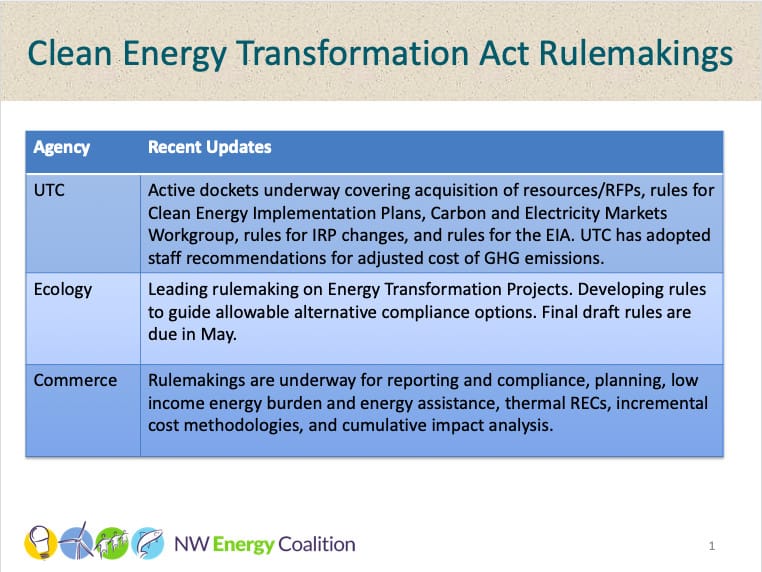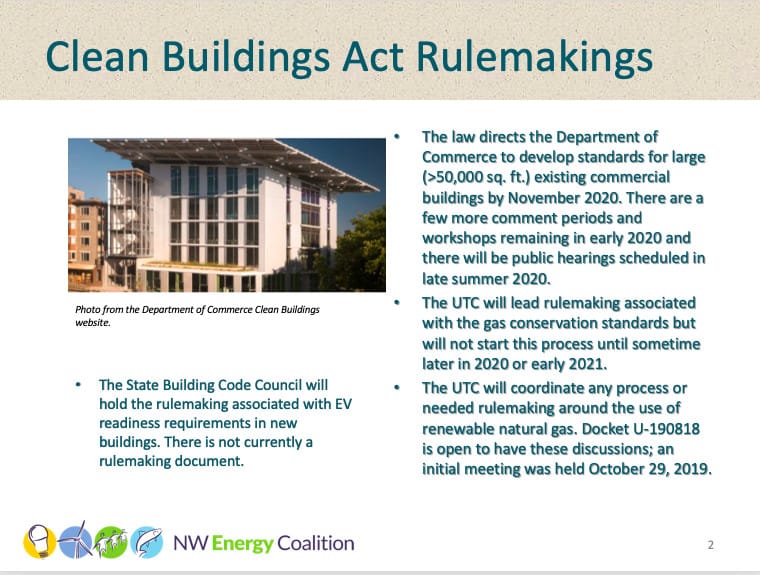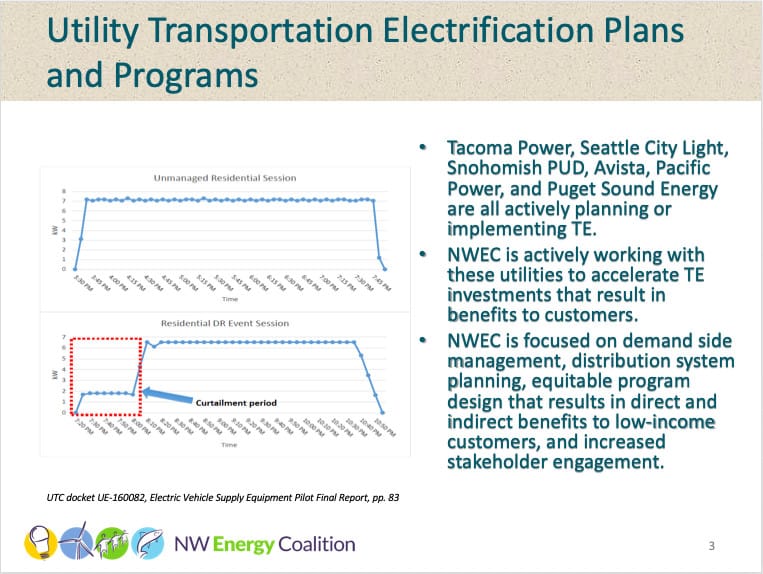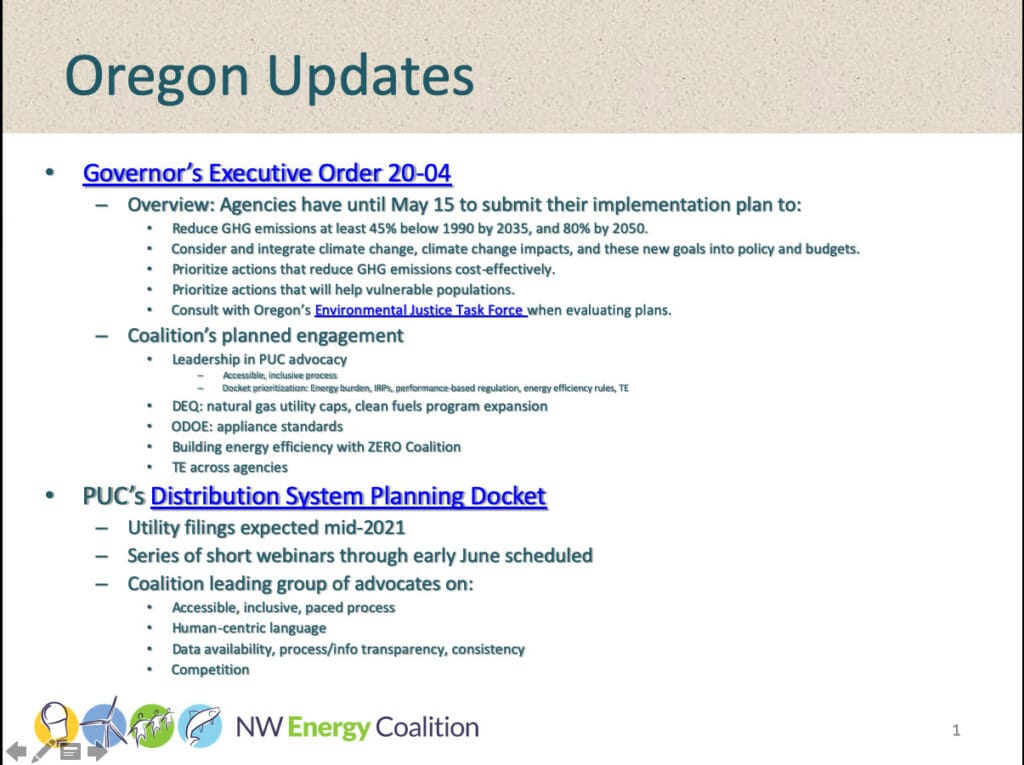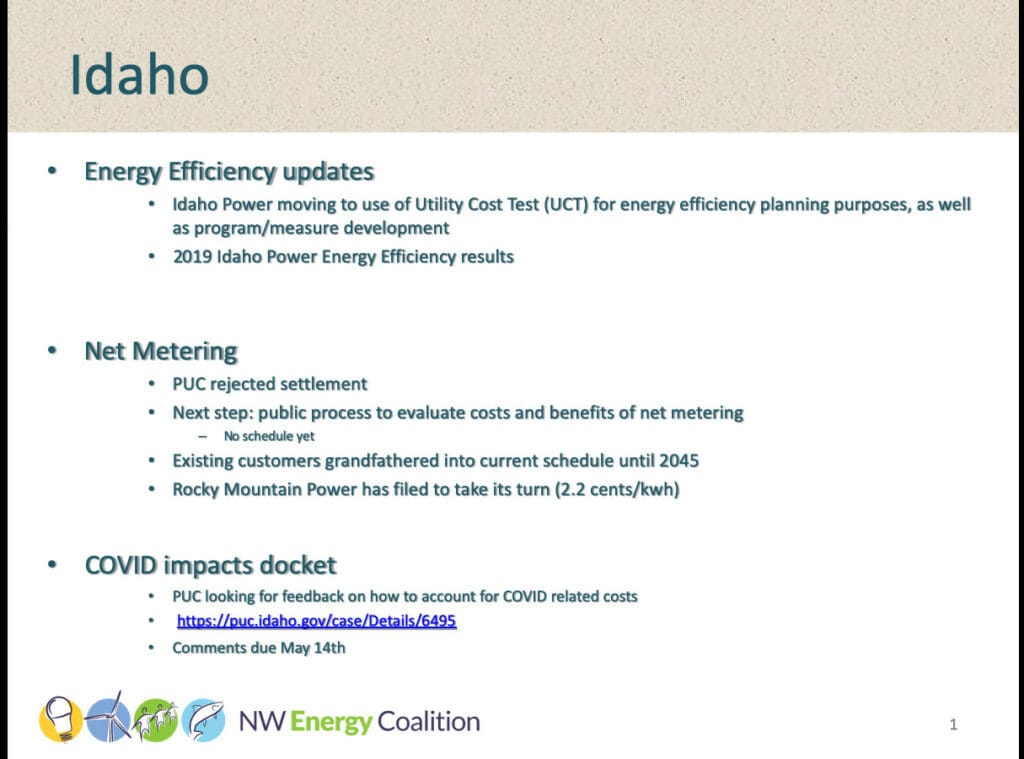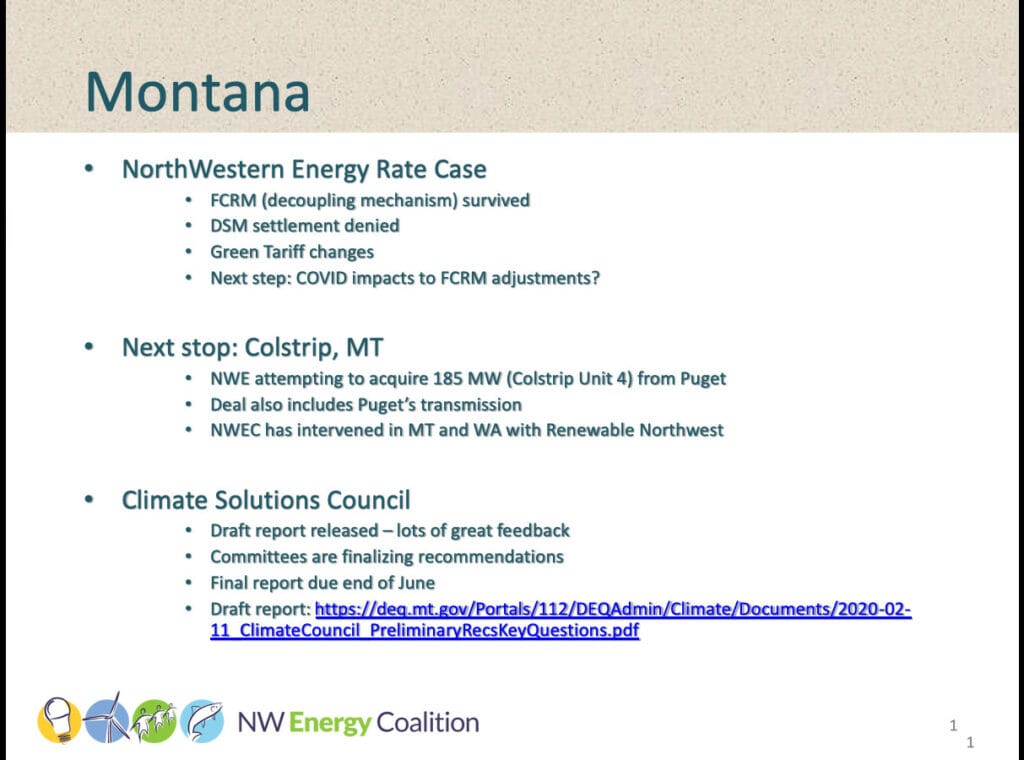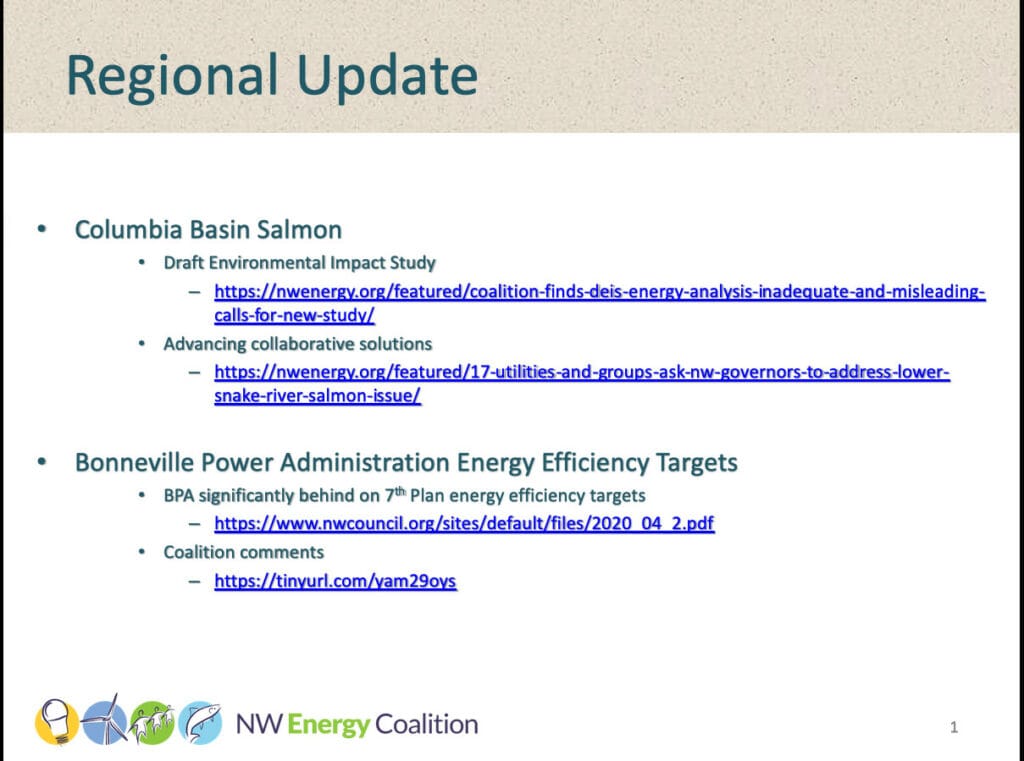May 7, 2020 Member Meeting Summary
MEMBER MEETING SUMMARY
May 7, 2020
Organizational Update
Executive director, Nancy Hirsh, reported that the Coalition is financially stable for the near and mid-term, but that given long-term unknowns is being cautious with its finances. Recently, the GiveBig campaign exceeded fundraising goals bringing in just over $14,000.
This summer the Coalition will begin development of its next 3-year Strategic Plan. In coming weeks, members will receive a survey soliciting their input concerning priorities, strengths and areas of improvement, and key areas where the Coalition should focus. The Coalition hopes to unveil a new 3-year Strategic Plan this fall.
The Coalition’s fall conference is scheduled for November 18/19 in Portland depending on conditions. The next round of caucus meetings will be held toward the end of summer.
New Member Applications
The Coalition received membership applications from Coffman Engineers, a national engineering firm that is heavily involved in energy services, and Counterbalance Capital, a finance firm that helps match investors with projects in the clean tech development space. Both were granted membership by consensus.
The Status of COVID-19 Response
The Coalition’s effort to persuade utilities to suspend service shut-offs during the coronavirus crisis has been quite successful, especially among the region’s largest utilities many of which are also increasing support for bill assistance and reconnecting those whose service may have been shut off before the crisis. Governors Inslee of Washington, and Bullock of Montana have also issued executive orders to prevent shut-offs.
NWEC is also working with low-income advocates at the federal level to win additional funding for LIHEAP. We also joined a group of utilities and advocates in Oregon requesting state funds for energy assistance. NWEC is working with a broad set of members to develop recommendations for federal stimulus funding for clean energy-related “shovel-ready” projects geared to getting the economy restarted.
Members expressed concerns that utilities may need to do additional work to inform customers of available assistance, that some smaller COUs have not been as forthcoming with assistance for their customers, and that in at least one instance energy efficiency program budgets are being diverted to fund enhanced bill assistance programs.
State Updates
Washington is progressing on rulemaking to implement the Clean Energy Transformation Act (CETA) and the Clean Buildings Act that were passed in the 2019 legislative session. Some of the issues being grappled with are methodologies for calculating the social cost of carbon, qualification criteria for COU low-income programs, which expenses should be counted towards the optional 2% threshold compliance path and establishing standards for commercial buildings. Further information is available on the Washington Legislation Implementation page of the Coalition web site.
Numerous utilities in the region are developing transportation electrification (TE) programs and NWEC is supporting strategies to facilitate demand-side management, distribution system planning, equitable rate design and program design that directly and indirectly provides benefits to all utility customers.
In Oregon, state agencies are working to comply with Governor Brown’s executive order to reduce greenhouse gas emissions. State agency implementation plans are due on May 15. The Coalition expects to focus on implementation primarily at the Public Utility Commission, with some engagement at the Dept. of Energy and Dept. of Environmental Quality. Key issues will be calculating energy burden on households, expansion of the clean fuels program, the adoption of appliance standards, energy efficiency in buildings and expansion of transportation electrification programs.
Oregon utility filings in response to the PUC’s distribution system planning docket are expected to arrive in mid-2021. A series of webinars is being held and will continue through early June.
In Idaho, Idaho Power is adopting the utility cost test (UCT) for energy efficiency planning. Our hope is that the change will lead to greater investment in efficiency and less need for generating resources. The Coalition recognizes the risks in this approach and is carefully considering the best way to expand energy efficiency programs when the avoided cost is so low. On another front, the Idaho Power net metering settlement was rejected, which puts resolution of the issue back to square one. It is expected that a new public process will be convened.
In Montana, the Northwestern Energy rate case is nearing final action. The PUC approved fixed cost recovery as proposed by NRDC. The commission turned down a proposed demand-side management settlement, but a new DSM advisory group should be convened soon.
The Colstrip drama continues with Talen Energy attempting to purchase Puget Sound Energy’s share of Colstrip Unit 4 rather than allow it to be sold to Northwestern Energy. The Coalition and Renewable Northwest are intervening in the case in both Washington and Montana.
The Montana Climate Solutions Council has released its draft report and committees are finalizing recommendations. The final report is expected at the end of June.
Regional Updates
The federal Columbia River System Operations draft environmental impact statement (DEIS) was released in February and, as expected, is not adequate to serve as the basis for a long-term solution to the various challenges associated with salmon recovery in the basin. The Coalition submitted extensive comments on the DEIS. The Coalition is working on a collaborative process with utilities and advocacy groups to forge a regional solution.
The Bonneville Power Administration (BPA) is not expected to meet the energy efficiency targets contained in the 7th Power Plan. The Coalition is asking BPA to increase funding to make up what could be a 25% gap and is also asking the Northwest Power and Conservation Council to take action to prevent a recurrence of the shortfall through improvements in the 2021 Power Plan (previously known as the 8th Power Plan).
Member Updates
- Ken Dragoon, Renewable Hydrogen Alliance, reportsthat his organization is working to get hydrogen fuel included in transportation electrification in Oregon and there is a proposed electrolysis project proposed Douglas County, WA. His group is also working to establish hydrogen fueling stations in the Portland/Vancouver area and is planning to commission a study on needs.
- Bonnie Frye-Hemphill, Solar Installers of Washington, reports that Washington Solar installers have recently been deemed essential service providers and will be allowed to go back to work. Oregon solar installers have been allowed to continue working throughout the pandemic.
- Ben Otto, Idaho Conservation League(ICL), reports that, on a federal net metering issue ICL is involved in an effort that on the legal side is being led by Earthjustice and on the advocacy side is being led by Vote Solar. The comment period has been extended to June 15.
- Maura Brueger, Seattle City Light, reports that, due to the coronavirus crisis, Seattle City Light’s new strategic plan will notgo before the City Council in early 2021. In addition, SCL will not implement its already approved rate adjustment in 2020. However, City Light’s transportation electrification plan is going forward and will be submitted to the City Council committee in July.


